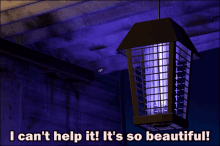
Posted on 09/14/2023 1:04:49 PM PDT by nickcarraway
Insects are disappearing from UK farms. Why, and what can be done? Michael Garratt, Simon Potts, Tom Breeze | September 12, 2023 Print Friendly, PDF & Email nature bees beekeeper honey Credit: Wallpaper Flare (Public Domain) Insect populations are declining worldwide at a rate of almost 1% per year. This decline is alarming. Insects play a crucial role in pollinating crops, controlling crop pests and maintaining soil fertility. In the UK alone, pollination provided by bees and other insects adds over £600 million to crop production every year. That’s about 10% of the country’s total annual crop value.
Through pollination, insects also make sure that fruit and vegetables are packed full of the vitamins and minerals needed for healthy human diets. Insufficient pollination would result in lower-quality foods, less choice and higher food prices.
The decline of pollinating insects is already affecting crop yields in the UK. Research on 20 UK apple orchards found that a lack of pollination led to average yield deficits (where the maximum potential output of these orchards was not reached) of up to 22%.
The issue extends beyond the UK’s borders. The UK imports a substantial proportion of fresh produce from regions such as Europe, north Africa, South America and Asia. So the global decline of pollinating insects also poses a huge threat to food security in the UK.
Just like fertiliser and water, these insects should be considered a legitimate agricultural input that needs to be protected and managed sustainably. There are effective methods available to restore beneficial insects to farmland, such as planting hedgerows and using pesticides sparingly, and farming practices are gradually changing. However, the implementation of these methods in the UK falls short of what is required to ensure the country’s food and nutritional security.
Follow the latest news and policy debates on sustainable agriculture, biomedicine, and other ‘disruptive’ innovations. Subscribe to our newsletter. SIGN UP Pollinators are under siege The main threats to pollinators globally are changes in what land is used for and how it is managed. As a result of the shift to modern industrialised farming, flower meadows and hedgerows have been replaced by monocultures and increasingly large fields. Consequently, the diversity of food sources available to pollinators has decreased and farmed landscapes have generally become less hospitable habitats for insects.
The excessive use of chemical pesticides and the impacts of climate change have made matters even worse. Rising temperatures are creating a mismatch between crop flowering times and when pollinators emerge. Bumblebees, for example, which are vital pollinators for crops both in the UK and globally, are struggling to shift their range in response to Europe’s warming climate.
Credit: Kenneth Allen/Geograph.ie (CC BY-SA 2.0) Together, these factors are driving losses in the abundance and diversity of pollinator species. Modelling studies have revealed around a 25% drop in the number of bee and hoverfly species observed within any 10km area of the UK compared to the 1980s.
And yet, the UK’s reliance on pollinating insects is likely to increase in the future.
Factors including climate change, technological advancements, shifting market demands and policies promoting sustainable food security mean new and underutilised crops such as soy, sunflowers and apricots are likely to be grown in the UK within the coming decades. Many of these crops benefit from insect pollination.
Restoring insects to farms Thankfully, there has been a notable shift in farming practices in recent decades towards reducing fertiliser, herbicide and pesticide use and restoring insect habitats. One approach is integrated pest management. This is a strategy for sustainable crop pest control that is based on using pesticides only when they are absolutely necessary.
The strategy was developed in response to steadily increasing pesticide use, which caused environmental damage and pesticide resistance. Farmers using integrated pest management are encouraged to prioritise the protection of natural predators such as wasps and spiders, which can help control pests effectively.
By reducing reliance on pesticides, integrated pest management also helps to protect pollinators. Research shows that bumblebees exposed to neonicotinoid pesticides (a widely used class of pesticide), for example, visited fewer flowers on apple trees and collected pollen less often.
In the UK, farmers are now incentivised to adopt environmentally sustainable practices through the environmental land management scheme. This scheme, which was fully launched in 2023, pays farmers to undertake activities that protect and enhance the natural landscape. These activities include planting hedgerows and flower strips along field boundaries, or creating woodlands.
Research demonstrates that expanding natural habitats in the UK’s productive arable farmland can boost pollinating insect populations. And, despite taking a portion of land out of productive agriculture, this approach did not reduce harvests.
Another option is agroforestry, where tree planting is deliberately combined with agriculture. This approach diversifies the farmed landscape and has been found to support twice as many pollinators as conventional cropping systems. In the case of apple pollination, these systems can even provide up to four and a half times more pollination.
But to fully amplify the benefits of agroforestry for pollinators, the UK needs to meet its national tree planting targets of 30,000 hectares per year by 2030. The current rate of tree planting falls significantly short of this target. Between 2018 and 2022, only 13,000 hectares were planted per year in the UK.
Over the past century, farming practices have contributed to insect declines. Supporting farmers to provide high-quality habitats for insects will not only help to slow down – or even reverse – insect decline, but will help to secure the UK’s food security.
Michael Garratt is a Principal Research Fellow at the University of Reading.
Simon Potts is a Professor of Biodiversity and Ecosystem Services at the University of Reading. Find Simon on X @SimonGPotts@SimonGPotts
Tom Breeze is a Senior Research Fellow at the University of Reading.
No insect food for the proles?

The premise of the article seems to boil down to this:
Declining insect population is a threat to farming, and farming is the cause of declining insect population.
>> Insect populations are declining worldwide at a rate of almost 1% per year. <<
The U.S. government can’t compute the illegal alien population to within 100%, but we’re supposed to believe they know the insect pop within 1%?
The elites make all sorts of promises and never keep them.
“Eat insects”, they said.
Well, we did.
Now we will starve.
I can ship them all the insects they want....
Lol.
The deep state has been poisoning the global environment with heavy metals and other toxins
Not as some kind of industrial byproduct. Deliberately poisoning.

I’ve got to get one of those hats.
“Insect populations are declining worldwide at a rate of almost 1% per year.”
Really? And who does the census of the global insect population every year?
It’s getting warmer, and there are fewer bugs.
We’re all going to die.
Top men.
Top. Men.
The thrust of the article can be summed up in one old, simple rhyme:
When in panic and in doubt,
Run in circles, scream and shout!
I’m betting most of the insect population has been in China, where they dont’ care about the environment. Just like the former Soviet was a giant toxic waste dump in many places.
Don’t tell them, but, its the giant windmills. Those things are killing the whales and now the insects.
So, don’t tell them since they won’t listen. It’s a climate change thing and the windmills are necessary, even if they kill all life on the planet.
(That’s my theory and I’m sticking by it)
Stop eating them.
I thought warmer gets us more bugs. I think warmer, colder, or no change just get us more government control.
🔝🔝🔝
Genetic Literacy Prokect
Really?
They can’t even spell their name right.
5.56mm
Disclaimer: Opinions posted on Free Republic are those of the individual posters and do not necessarily represent the opinion of Free Republic or its management. All materials posted herein are protected by copyright law and the exemption for fair use of copyrighted works.